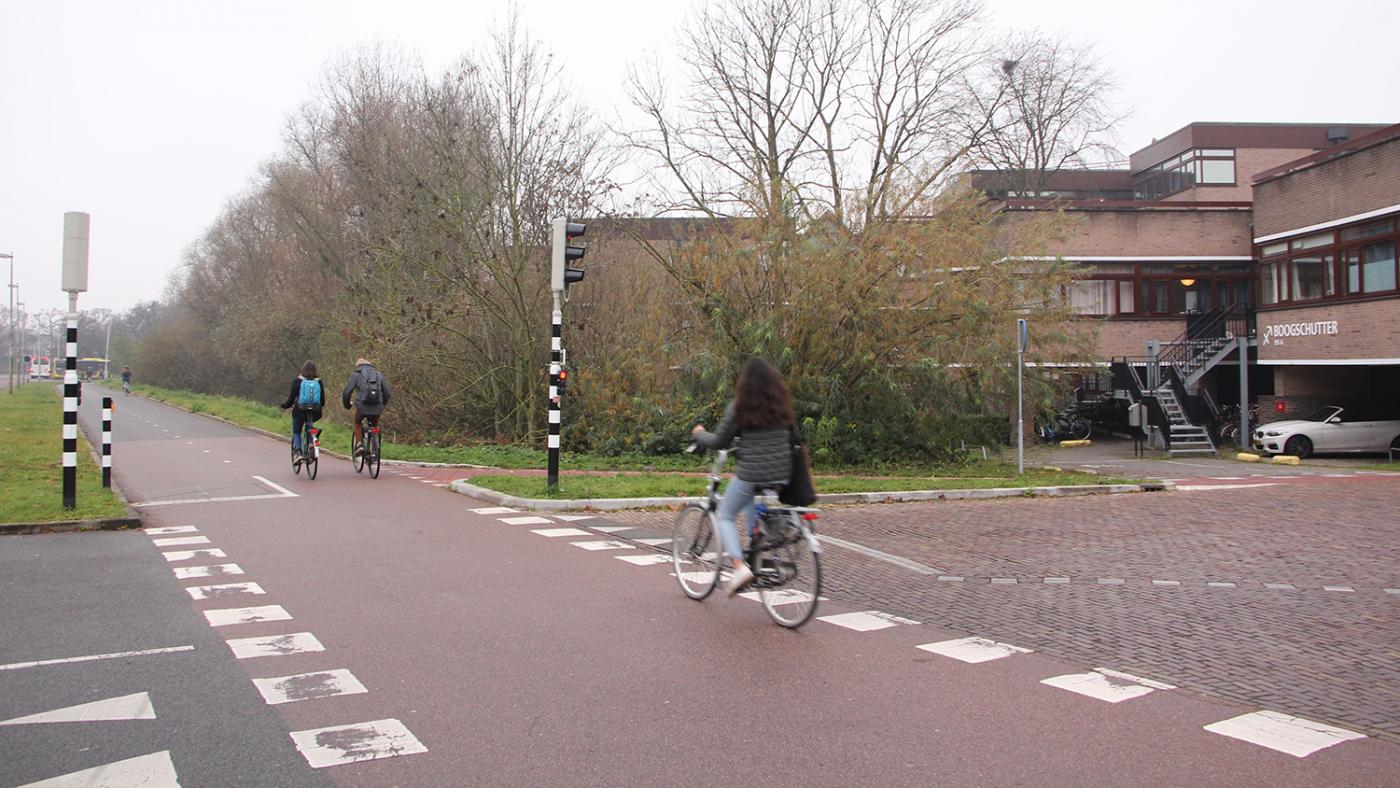Political party VVD concerned about cycle paths to Utrecht Science Park
Women's safety in university cities in the spotlight

“We demand the night.” That is the slogan that has taken over the Netherlands since the murder of 17-year-old Lisa, from Abcoude. She was killed two weeks ago on her way home after a night out in Amsterdam. The campaign was set up by Danique de Jong.
The week before Lisa's murder, another woman was the victim of sexual violence in the same area, presumably by the same perpetrator. This led to outrage across the country. ‘No matter what we look like, where we are, or what time it is. Let women come home safely’ is the campaign's message.
In addition to “We demand the night”, other initiatives are drawing attention to violence against women in the Netherlands. A march against femicide took place in Utrecht on Sunday, for example.
Responsibility
Students do not always feel safe either. ‘I always cycle faster at night, pay more attention to my surroundings, and wear only one earbud so I can hear what's going on. I also share my location with a few people permanently, so there's always someone who knows where I am,’ says a Maastricht student to the university newspaper Observant.
Things almost went wrong during the introduction week in Nijmegen. On Wednesday evening, someone tried to force a female student to enter their car against her will as she was cycling home. The incident was reported by the coordinator of the introduction week to the Brabants Dagblad newspaper. It ended well, but women studying in Nijmegen are advised not to cycle home alone.
In Utrecht, the political party VVD has submitted written questions to the municipal council. According to the party, there are still too many unsafe areas in Utrecht. A survey conducted by VVD revealed that women feel uncomfortable in areas such as Utrecht Science Park and cycle paths from the city to the university. The same applies to the route to Olympos Sports Centre.
VVD would therefore like to see all unsafe areas in Utrecht identified. The party is also curious about how the municipal council and the university are communicating with citizens about this issue.
Inappropriate behaviour
"We still tend to view women's safety as their individual responsibility, but that is not the case," emphasises Mariëtte Hamer, the government commissioner leading the fight against sexual violence. She believes it is essential to discuss the subject openly.
Maaike Krom, chair of the National Student Union, agrees. "It's good that people are paying more attention to this issue now, but it's terrible that it took someone losing their life for this to happen."
Earlier this year, it emerged that 50 percent of women enrolled in higher education institutions had recently been victims of sexual abuse. For one in six women enrolled in universities of applied sciences and one in four women in research universities, the incident escalated to physical violence.
Educational institutions
"Educational institutions can help students who have been victims," says Krom. "But students often don't know where to turn."
Sarah Evink, chair of the National Student Association (ISO), agrees. ‘This topic has received more attention in recent years, so much so that some introduction weeks have assisted women in walking home together this year. It is important that institutions create an open atmosphere so that there is a nice place to talk about it if something goes wrong."
Comments
We appreciate relevant and respectful responses. Responding to DUB can be done by logging into the site. You can do so by creating a DUB account or by using your Solis ID. Comments that do not comply with our game rules will be deleted. Please read our response policy before responding.